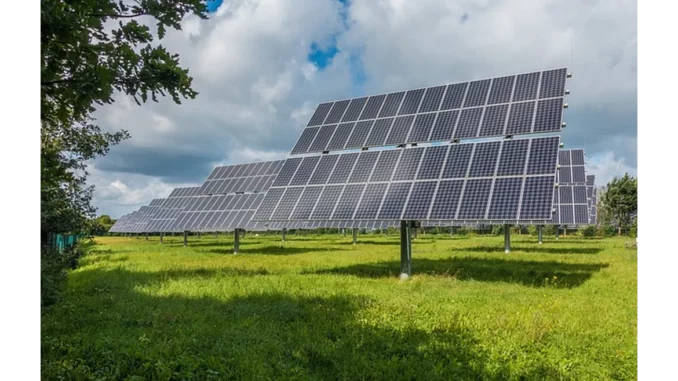
In a recent conversation, I had the privilege of engaging with Claire MacDonald, an active participant in Solar Energy Scotland, to delve into the concerns raised by the trade body regarding the Scottish Government’s new energy efficiency standards for buildings. Claire’s insights shed light on the intricate challenges and promising opportunities the solar sector faces amid evolving regulatory landscapes.
Discover how Focus360 Energy aids sustainable development with Sustainability Statements.
Meeting at a charming café in Edinburgh, Claire’s fervour for renewable energy was immediately palpable. “My passion for solar energy has been unwavering for years,” she began, her eyes alight with determination. “Harnessing the sun’s power is not just a technological feat; it’s about forging a sustainable future for Scotland.”
The conversation swiftly pivoted to the core issue—the Scottish Government’s proposed energy efficiency standards. “The intent behind these new regulations is laudable,” Claire conceded. “They aim to enhance fabric and comfort standards in newbuild properties, a goal we all endorse. Yet, the concern lies in the fact that these standards appear outdated, particularly in recognising the potential of solar energy.”
Claire elaborated that the government’s consultation process was inspired by the Passivhaus standard, known for its high insulation and air tightness, resulting in low energy demand. “Passivhaus is indeed a commendable model,” she noted. “However, the current consultation overlooks modern iterations of Passivhaus, such as ‘Plus’ and ‘Premium’, which mandate renewable energy installations like solar power.”
As the discussion deepened, it became evident that the solar sector in Scotland felt disregarded. “The proposed regulations fail to reflect advancements in renewable technology,” Claire pointed out. “While the EU and England mandate rooftop solar, Scotland seems to lag behind.”
A significant issue Claire underscored was the outdated energy calculations embedded in the proposed standards. “These calculations undervalue on-site generation like solar power,” she explained. “They neglect the vast opportunities offered by battery energy storage and smart home energy management solutions. It’s disheartening because we possess the technology and expertise to make a substantial impact, yet the regulations have not kept pace.”
Josh King, Chair of Solar Energy Scotland, had previously expressed analogous concerns. I inquired about the trade group’s response to the government’s consultation. “We are actively engaging with the government,” Claire responded. “Josh and the team are diligently working to present a compelling case for incorporating solar power into the new standards. We are urging the Scottish Government to align with the EU and the rest of the UK on rooftop solar mandates.”
Claire was not merely focused on highlighting the issues; she was eager to discuss potential solutions. “We must modernise our approach,” she asserted. “By updating the energy efficiency standards to encompass renewable energy installations, we can fully leverage solar power. This is not solely about addressing current needs; it’s about future-proofing our buildings and contributing to a sustainable energy system.”
The conversation took a more personal turn as Claire shared her experiences within the solar sector. “I have witnessed the transformative power of solar energy firsthand,” she said, her voice resonating with conviction. “From modest residential projects to expansive commercial installations, the impact is significant. It’s not just about lowering energy bills; it’s about reducing our carbon footprint and making a positive environmental contribution.”
As our discussion drew to a close, Claire’s unwavering commitment to the cause was unmistakable. “We have a pivotal opportunity,” she concluded. “An opportunity to lead by example and demonstrate that Scotland is genuinely committed to renewable energy. But we need the appropriate regulations to make that a reality.”
Claire’s insights provided a profound perspective on the ongoing discourse surrounding Scotland’s new energy efficiency standards. It is apparent that the solar sector is prepared to play a crucial role in the country’s renewable energy future, contingent on the support of updated and forward-thinking regulations.
Leaving the café, optimism for positive change lingered. With passionate advocates like Claire championing the cause, there is hope that Scotland’s building regulations will soon mirror advancements in renewable technology, paving the way for a brighter, more sustainable future.


Be the first to comment